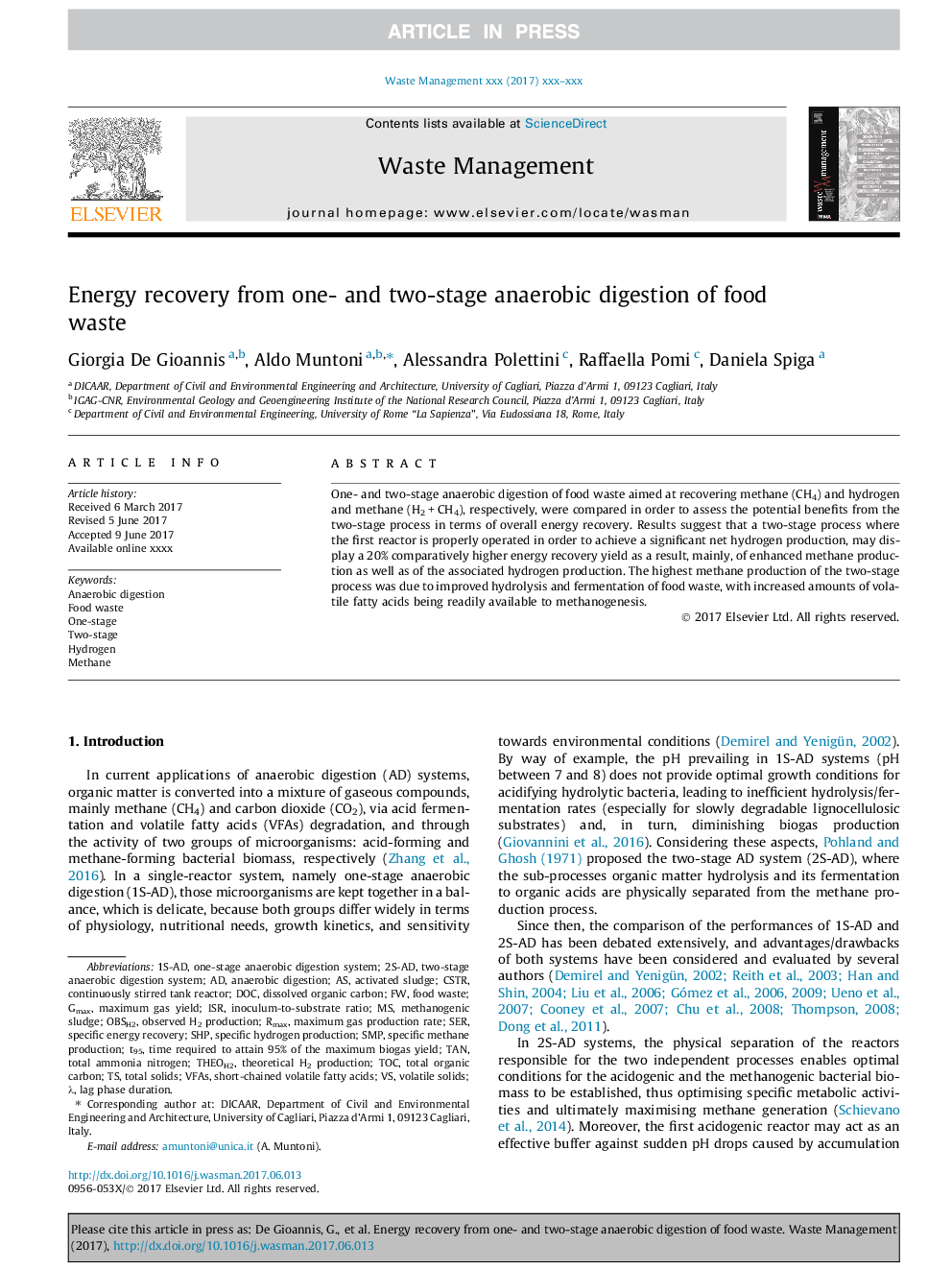| Article ID | Journal | Published Year | Pages | File Type |
|---|---|---|---|---|
| 5756606 | Waste Management | 2017 | 8 Pages |
Abstract
One- and two-stage anaerobic digestion of food waste aimed at recovering methane (CH4) and hydrogen and methane (H2Â +Â CH4), respectively, were compared in order to assess the potential benefits from the two-stage process in terms of overall energy recovery. Results suggest that a two-stage process where the first reactor is properly operated in order to achieve a significant net hydrogen production, may display a 20% comparatively higher energy recovery yield as a result, mainly, of enhanced methane production as well as of the associated hydrogen production. The highest methane production of the two-stage process was due to improved hydrolysis and fermentation of food waste, with increased amounts of volatile fatty acids being readily available to methanogenesis.
Keywords
Related Topics
Physical Sciences and Engineering
Earth and Planetary Sciences
Geotechnical Engineering and Engineering Geology
Authors
Giorgia De Gioannis, Aldo Muntoni, Alessandra Polettini, Raffaella Pomi, Daniela Spiga,
